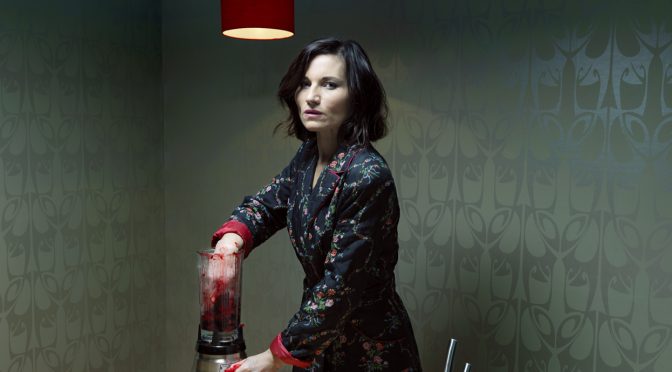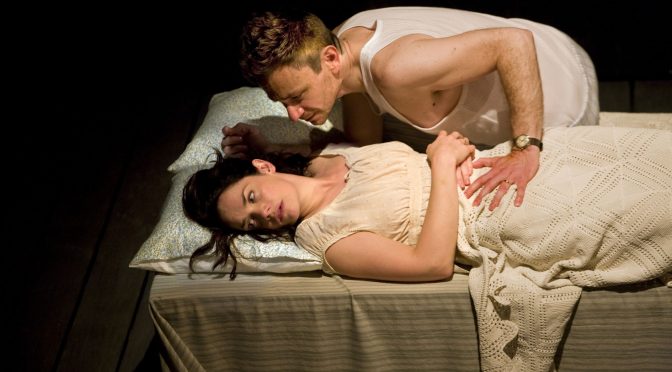We all know Medea’s biography – a sorceress who kills her kids when her husband leaves her – but it might help also to know more about the writer of the Almeida’s new version, Rachel Cusk. The prize-winning author of controversial novels about motherhood and marital breakdown has created a fiercely modern adaptation – the most radical of the theatre’s acclaimed Greek season.
Euripides’ play is a starting point (an altered conclusion tells us that much), inviting us to examine the topic of women and injustice. Cusk’s Medea is a writer, a magician with words, whose talent provides her chance for revenge. But the odds are against our heroine, as made clear by her former husband Jason (Justin Salinger) and Andy de la Tour as Creon, father of the younger woman she’s been deserted for.
Other women don’t help either. Amanda Boxer plays her mother, full of insulting criticism, while Michele Austin, as Medea’s cleaner, is relentlessly negative. The chorus consists of yummy mummies, obsessed with their husbands’ careers and trivial gossip. It’s close to the bone in Islington, an easy target, and I didn’t find them all that convincing. It can’t be that bad at the school gates, can it?
The arrival of a messenger from the gods is incongruous. Presented as both male and female, it’s an idea not even the excellent Charlotte Randle in the role can make effective, and a stumble in Rupert Goold’s sure-footed direction. But at least the messenger provides a welcome break by speaking in verse. Cusk’s theatrical dialogue is unusual. There are few conversations here: Medea talks to her friend Aegeus (Richard Cant) striking a deal over revenge, but she confronts Jason over the phone, while others just lecture her and the chorus’ conversations are deliberately one sided. The play has people pontificating rather than communicating and, at times, is tiring.
Kate Fleetwood in the title role is really the highlight of the show. Her Medea is truly scary – when she picks up a knife, the air crackles – but she is even better when controlling that tension. Forcefully intelligent, which adds credibility, her revenge will be… different. Best of all is Fleetwood’s ability to convey the physical pain of the character, clutching her stomach and clenching her hands. At its most effective, this is a close-up portrayal of rejection, masterfully conveyed.
Until 14 November 2015
Photo by Paul Thompson


